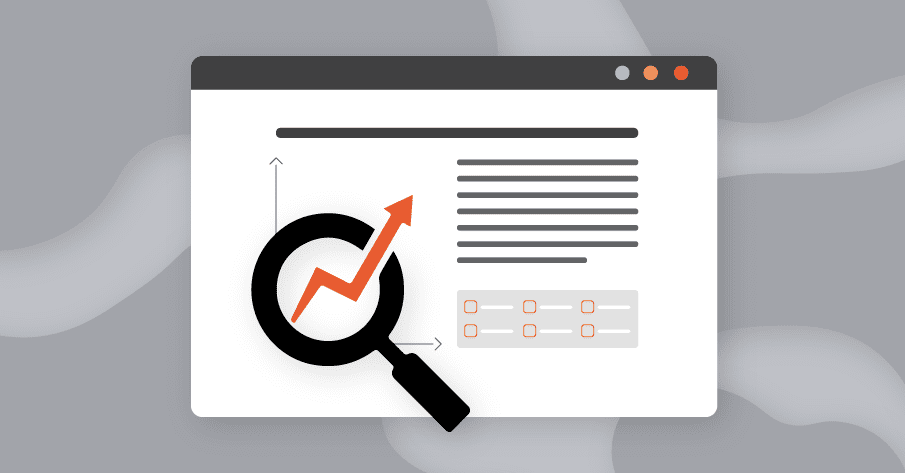
Virtual events are becoming more and more popular. That means effective virtual event marketing is crucial. But marketing leads are facing challenges when it comes to implementing a virtual event strategy.
Enforcing a marketing plan for virtual events requires the same precision as for in-person events. But, with increasing competition in the virtual event space, you need online event marketing that really stands out. It’s the only way you’ll gain interest, boost attendance and drive conversions at your virtual events.
In this article, you’ll find 12 virtual event strategies to ensure your virtual events come out on top. Why not try them out?
How to create a virtual event strategy
Virtual event marketing strategies aren’t that different from in-person event marketing plans. The key difference: the timeline for virtual event promo is often shorter. That’s because if you promote your virtual event too far in advance, it may get lost in the jumble of online content.
But on the plus side, this means there are elements that are less time-consuming for you! For example, no need to spend weeks finding and booking the right venue. Simply research and pick the right event platform in just a few hours.
Virtual event platforms allow you to plan an event at any time, for anyone. And yes, that means you may be left with less time for online event marketing. So, it’s even more important you have a solid virtual event strategy in place.
Your virtual event promo could include email marketing, social media marketing, paid ad campaigns, and cross-promotion, to name a few. Let’s dig into the specific virtual event strategies you can use to ensure your virtual event shines.

12 virtual event marketing strategies to include in your marketing plan
Setting up a virtual event marketing plan is key to driving conversions and registrations. Here are 12 strategies that’ll give your virtual events that all-needed marketing boost.
#1) Do online event marketing before, during, and after the event
In-person events need planning 6–12 months before. But virtual events have a quicker turnaround time of 1–3 months.
That’s because you don’t have to nail down a physical venue in advance. Setting up a virtual event quickly gives you more time to focus on virtual event promo.
Here’s a general timeline for promoting your event:
Before:
- Identify your audience
- Create registration landing pages
- Send direct mail campaigns
- Create social media posts and contests
- Create an event website
- Launch email marketing
- Send reminder emails
During:
- Send reminders
- Create live social media posts (Facebook, Twitter, LinkedIn)
- Share downloadable content
- Use live chat or chatbots to answer event questions
- Run branded experiences and activities
After:
- Follow up with thank you emails
- Send “sorry we missed you” emails (for no-shows)
- Update your website to be relevant post event
- Share post-event surveys (via email or your website)
- Launch retargeting campaigns
- Post highlights on websites and social media (Twitter, Facebook, YouTube)
- Send invitations to your next event
- Ask sales to contact leads and begin nurturing them
Looking for a full breakdown of your promotion timeline? Check out the best virtual event planning checklist for your event committee.
#2) Get buy-in from your sales team to support your virtual event strategy and drive registration
When sales and marketing departments align, you improve your event’s odds of success. Not just in terms of the sales cycle. But also conversion, promotion, and registration.
In virtual event marketing plans, both departments complement each other. They can help one another fully understand the target audience to drive quality conversions. And lots of them.
Marketers know who the target audience is. Maybe they’ve even set up a buyer persona. However, salespeople have first-hand experience with buyers. So, they can advise marketers on the key pain points, frustrations, and FAQs. Marketers can then create effective content that will resonate with their true and evolving audience.
Listen to your sales team to put yourself in your target audience’s shoes. That way you’ll create more effective registration landing pages to increase conversions. And you’ll ace your virtual event marketing strategy.
Still on the fence about aligning your sales and marketing teams? Check out 12 Benefits Of Having Sales and Marketing Work Together On Your Event Marketing Strategy.
#3) Make email marketing your virtual event strategy’s best friend
Email marketing is the greatest tool for virtual event marketing. Everyone uses email. You can’t register for the event without one.
When it comes to sending pre-event emails, be liberal in your approach. Don’t just send 1 reminder and think it’s enough. Emails are easy to miss.
We recommend sending at least 3 reminder emails before your event. (4 is probably better for a top-notch virtual event strategy).
Pre-event reminder email timeline:
- 1 week before the event
- 1 day before the event
- The day of the event
- The start of the event
- During the event to people who registered but haven’t signed in yet (if your platform allows for this)
After your event, email marketing transforms into the most effective facilitator of lead nurturing. You don’t want your attendees to just drop off after the event. You want to engage them, keep them around, and get them into your sales funnel! This is what your whole virtual event marketing strategy is for.
Post-event email engagement ideas:
- Follow up with thank you emails
- Send post-event surveys
- Send invites for future events or webinars
- Ask for reviews to post on future registration pages and online content
- Email leads with blog posts and product updates to keep them up to date and engaged with your brand
It often takes many points of contact with a prospective lead to close a sale. The longer you can keep your lead engaged with your company and your content, the more likely you are to close the sale and keep a loyal customer.
If you’ve gone above and beyond with your customer, they’ll tell their friends and family about your company or product. The ideal outcome from your virtual event marketing plan.
Looking for powerful demand and lead generation strategies for your next event? Get 10 strategies you can start implementing right away.

#4) Create an event page that converts
Your event page is the primary source of all the information your guests need to know to attend your event. It should impress your audience at first glance. And it should encourage effortless event sign-up:
- They have a problem.
- Your product can fix it.
- Your virtual event will explain how.
Part of your virtual event strategy should be to make sure you illustrate this in the most straightforward and creative way possible.
Your event page must contain:
- Pictures
- Event date and time
- Event agenda
- A well-written blurb and event descriptions
- Videos (from previous events or behind the scenes)
- Guest speaker information
- Sponsor information
- Social proof (customer reviews)
- Sign-up links
- Shareable buttons for social media
Above all, your registration page should make it as simple as possible to register. Don’t hide the “Register Now” button. Make it clearly visible. Also, consider adding multiple registration buttons. 1 button at the top and 1 at the bottom of the page.
Do A/B tests on different event registration pages to see if a green, red, or blue registration button is more effective. Sounds simple. But minor tweaks in color or wording in your call-to-action can make a big difference. If you have time to A/B test your registration page, do it. There’s always room for improvement. And this will boost your online event marketing.
Some virtual event platforms feature a registration page builder that allows fully-brandable customization and automatic email notification configuration. You can create beautiful registration pages. Simply upload your company’s logo, choose your brand colors and set automatic email notifications. That way, your participants will receive an email once they register for your event.
If you’re a life science company looking for ways to boost your omnichannel startegy, check out HCP engagement: emerging trends, success metrics, and omnichannel strategies.

#5) Add keywords to your event page to increase your SEO ranking
SEO is part of any solid virtual event marketing strategy. You most likely use keywords in your blog posts and on your web pages to appear higher up in Google’s search results. So, why not do the same for your event page?
Just like keyword research you do for your blog, find keywords people are searching for related to your event. Then, add them strategically throughout your event registration page.
That way, when people search for those words, your event is more likely to appear. Using this virtual event marketing plan could result in you attracting a wider audience.
Remember when searching for keywords to use the following:
- Autocomplete on search engines
- The ‘People also ask’ box
- The ‘Searches related to …’
#6) Leverage social media channels that make sense for your virtual event audience
Facebook, Twitter, LinkedIn, YouTube, Instagram, and even Snapchat. They all have their strengths and purposes to help with your virtual event marketing strategy.
LinkedIn is great for attracting a professional crowd. It also allows for easy searching for professionals who fit your target audience. LinkedIn Ads allow for hyper-specific ad targeting. Perfect for your virtual event promo. (E.g. you could advertise your event to human resource professionals in a 50-mile radius around Chicago).
Facebook is ubiquitous and is useful for creating event pages that are highly shareable and allow for multi-media posts, like photos, videos, links, or written posts.
For the younger, more visually oriented crowd, Snapchat and Instagram offer another channel to reach your target audience through photos and quick videos. You could even create a hashtag as part of your virtual event promo.
And don’t forget YouTube. Have videos from a previous virtual event? Use Google Ad Manager to place your video ad before, or during similar content on YouTube. That way you’ll spread your event’s reach with people who are actively consuming related content.
For more event promo ideas, see 12 event promotion strategies to attract the right audience and grow your business.
#7) Tease out what’s coming before your virtual event
Don’t give away all your secrets straight away. That wouldn’t be an effective virtual event marketing plan. Instead, keep your attendees guessing. Make them want to keep coming back to your website or event page for updates.
This is a common virtual event promo tactic for music festivals. First, they announce the smaller acts. Then, as the festival approaches, they begin announcing the headline acts. Those are the main attractions that fans have really been waiting for.
Tease your audience by giving them cliffhangers. On your registration page, don’t list all your guest speakers. Add something like “more guest speakers to be announced next week”. This also means you can start your online event marketing before you’ve finalized every detail.
Post these hints and updates on social media. Write about them in pre-event emails. Update your event website and registration page. You’ll be sure to encourage guests to come back and check for more.
Not sure which metrics to track to measure the success of your next event? Check out 19 virtual event success metrics you should be monitoring.
#8) Get sponsors and speakers to broadcast information about your event
How many sponsors and speakers will there be at your virtual event? Probably a fair few. Asking them to spread the word about your event is an effortless way to boost your virtual event marketing strategy.
They’ll be even keener to share details about your event if you provide them with a pack of material they can share. (That way they don’t have to come up with the ideas themselves). Be careful though as you don’t want to offend.
No need to be shy. Ask your sponsors and speakers politely and we guarantee they’ll be happy to get people talking about your event. It’s also a way to put themselves in the limelight. So, why would they refuse?
#9) Use the ‘invite a friend’ technique
The power of word of mouth never ceases to amaze. This is another part of a virtual event strategy that doesn’t require much effort on your part.
Simply get people to share information about your virtual event to boost sign-ups. Everyone loves freebies and a bit of healthy competition. Use these to your advantage to get more event registrations.
In the thank you for registering email, you could provide people with links to invite their peers. Or you could offer discounts or gadgets to people who manage to get a certain number of people to sign up.
To get more inspiration for your online event promotion, check out our 41 creative ideas.
#10) Use your marketing copywriting skills
Write an article about your upcoming event and post it on your blog. Give your audience some background knowledge that will get them excited about what’s to come.
You probably have a content marketing strategy in place. So, adding a blog post that talks about your event is a simple way to boost your virtual event marketing plan. No extra effort needed.
If you don’t have your own blog, that’s ok. Why not reach out to a blog that relates to the industry or subject matter of your event. You could offer to do a bit of guest blogging. The best people to reach out for would be your event sponsors and speakers.
Want to save millions on your content and event marketing strategy? Think about combining them by repurposing your event content. Read our article on content marketing for events: how to repurpose your event content.
#11) Send a press release to online event marketing sites
This method was traditionally used for in-person events. But press releases also play an important role in virtual event marketing.
You can use the keywords you added to your event page and your blog post in your press release too. Make sure you big up your event. Share information about the speakers, agenda, topics, and takeaways. And ensure people know what they will gain from your event.
Send your press release to news desks, media outlets and publish it on free press release sites. That way, you’ll get maximum exposure.

#12) Create a virtual event promo video
Video is the most engaging form of content. That’s why it’s a fantastic idea to include it in your virtual event strategy.
You can get really creative with video by including:
- Scenes from previous events
- Behind-the-scenes preparation
- Snippets of your speakers
- Snapshots of your product or service
Just make sure your video is short. People have a short attention span nowadays. Aim for 2 minutes maximum.
As a call-to-action, you could include a discount code for event registration at the end. (Also a great tactic to see how many viewers watched the entire promo video).
Round off your virtual event marketing strategy with an engaging virtual event platform
SpotMe is the complete engagement event platform. It gives you every tool you need to plan, organize, and promote your next virtual event.
Our built-in registration pages offer a beautiful and fully-branded way to impress your audience. You can customize your page in any way you wish.
Our notifications feature allows event hosts to send live or scheduled updates to guests about important changes or calls-to-action. And targeting allows you to send specific notifications and content to users based on their profile information. All this so that you can create a tailor-fitted custom experience that’s sure to be memorable.
Ready to try SpotMe? Contact us today to start your free trial!
Interested in learning more about virtual event marketing? Check out 19 Social Media Tips for Event Promotion and 12 Event Promotion Strategies to Attract the Right Audience and Grow Your Business.



